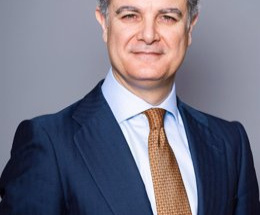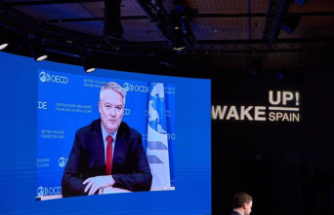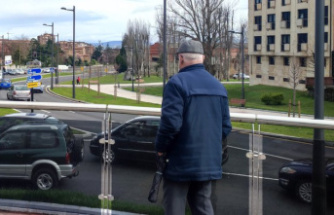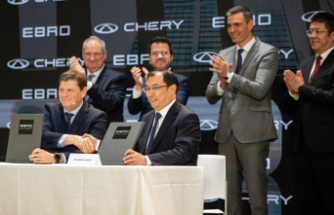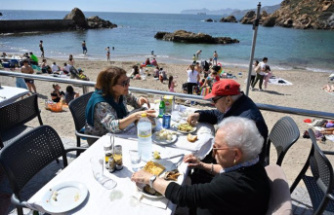The Spanish group buys half of its subsidiary for green hydrogen projects from the German wind turbine manufacturer for 68 million euros
MADRID, 31 Mar. (EUROPA PRESS) -
Acciona and its German investee Nordex have formed a 'joint venture' to develop green hydrogen projects in areas with abundant wind resources available and not connected to conventional electricity networks, to produce at competitive costs, announced this Friday the group chaired by José Manuel Entrecanales.
The new company already has eight locations of these characteristics located in the United States, Latin America and Africa and is evaluating new opportunities in other parts of the world, according to Acciona.
This 'joint venture' will not operate in Spain and Portugal, where Acciona Energía already maintains an alliance with Plug Power.
The Acciona group will have a 50% stake in this new company, distributed equally between Acciona and Acciona Energía, while the German manufacturer of wind turbines Nordex will have the remaining 50%.
The operation has been articulated through the purchase, by Acciona, of half of the Nordex subsidiary for the development of green hydrogen projects for a deferred amount of 68 million euros, payable over the next four years.
With a target renewable energy portfolio of 50 gigawatts (GW) under development, the plan of this new company between Acciona and Nordex is to develop projects that will produce 0.5 million tons of green hydrogen per year over the next ten years. years. The first would be ready in 2027.
Each of the projects, whose minimum size will be 1GW of installed renewable power, will be deployed through strategic agreements with other public and private companies and institutions interested in the production or massive consumption of green hydrogen.
Acciona has highlighted that the demand for green hydrogen in the world will grow by around 700% in the next 30 years, driven by the decarbonisation of the economy, according to various studies.
"Consequently, green hydrogen could contribute to 20% of the total emission reduction needs by 2050. More than 25 countries have already established green hydrogen plans," added the Spanish group.
The European Commission published in May last year its REPowerEU plan, which outlines the path of the European Union (EU) towards the rapid reduction of energy dependence on fossil fuels by 2027. The plan aims to produce ten million tons of renewable hydrogen in the EU and the same amount of imports by 2030.
"Green hydrogen will be key to ending greenhouse gas emissions in sectors that are very difficult to decarbonise, such as industry, agriculture, or air and maritime transport," stressed the president and CEO of Acciona, José Manuel Entrecanales. .
"This joint venture complements our alliance with Plug Power for Spain and Portugal, more focused on proximity solutions for our customers", added Entrecanales.
On the other hand, José Luis Blanco, CEO of the Nordex group, has highlighted that the group's experience in the development of wind projects has allowed it to "build an attractive portfolio of green hydrogen projects in interesting geographical areas, as well as a close network of excellent local promoters and experienced partners".
Green hydrogen is obtained through the electrolysis process that, with non-polluting renewable energy, breaks down water into its components, hydrogen and oxygen. Once obtained, green hydrogen can be transported through pipelines or synthesized into green ammonia or sustainable fuel.
Nordex has been working for a year at its plant in Barasoain (Navarra) on the development of a new prototype of a pressurized alkaline electrolyser adapted to the variable operation of renewable sources. This initiative has been recognized as an Important Project of Common European Interest (IPCEI).
Currently the development of the electrolyser is in an advanced phase of R D i, with the aim of increasing the operational flexibility of alkaline technologies. In a later phase, Nordex will develop the modular prototype at its facilities in Navarra.


